The Universe speaks in Princeton and Harvard
Published in North America on 28 May, The Universe Speaks in Numbers was launched twice – at the Institute for Advanced Study, Princeton, and at Harvard University. The two events were quite different but equally successful.
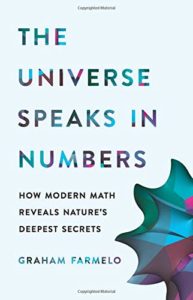
At the Institute for Advanced Study, on the afternoon after publication day, theoretical physicist Nima Arkani-Hamed and Graham organized a programme of several talks and discussions in Wolfensohn Hall .
The roster of speakers was remarkable:
2:00 p.m. Welcome, Robbert Dijkgraaf, IAS Director
2:05 p.m. Graham Farmelo on ‘The Backstory’
2:35 p.m. Natalie Wolchover interviews Freeman Dyson and Karen Uhlenbeck about the ‘divorce’ between mathematics and physics in the mid C20th
3:05 p.m. Greg Moore, on physical mathematics
3:50 p.m. Tea break
4:20 p.m. Kyle Cranmer on ‘The Primacy of Experiment’
4:40 p.m. Nima Arkani-Hamed and Thomas Lam in conversation about their collaboration
5:10 p.m. Robbert Dijkgraaf and Edward Witten in conversation – overview of the mathematics-physics relationship
5:45 p.m. Book signing
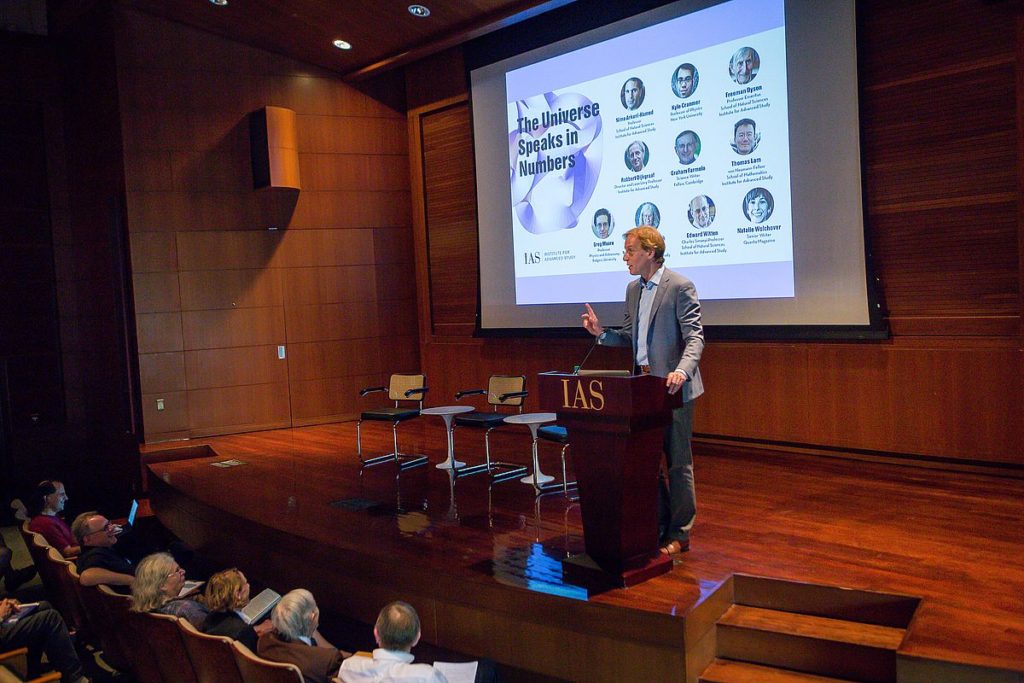
Welcome and introduction by mathematical physicist Robbert Dijkgraaf, director of the IAS
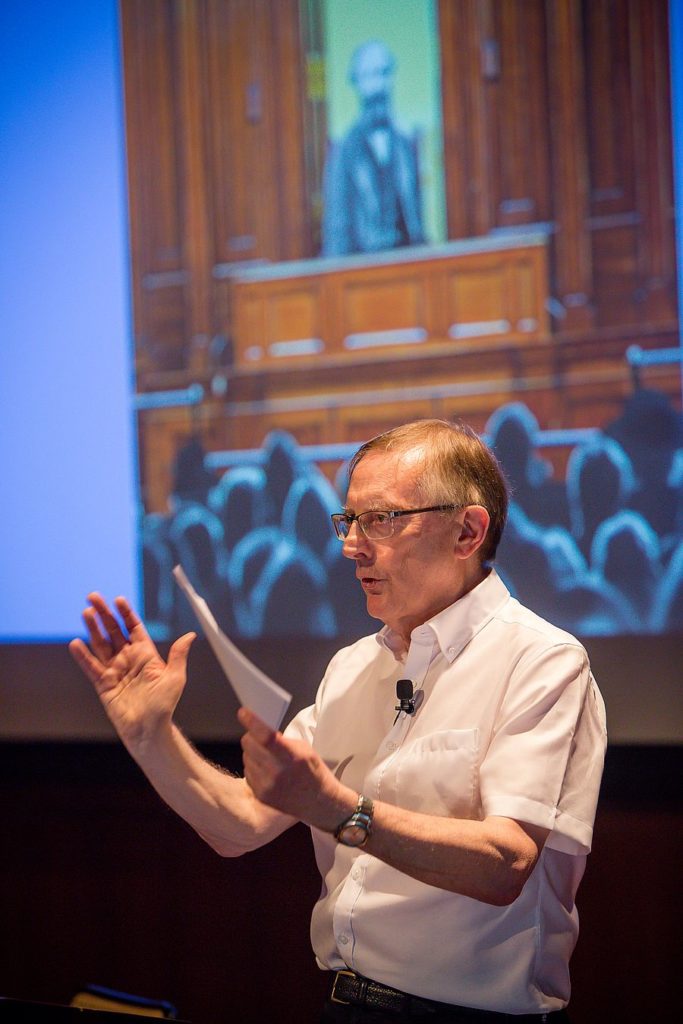
Graham enthusing about the contributions of the natural philosopher James Clerk Maxwell
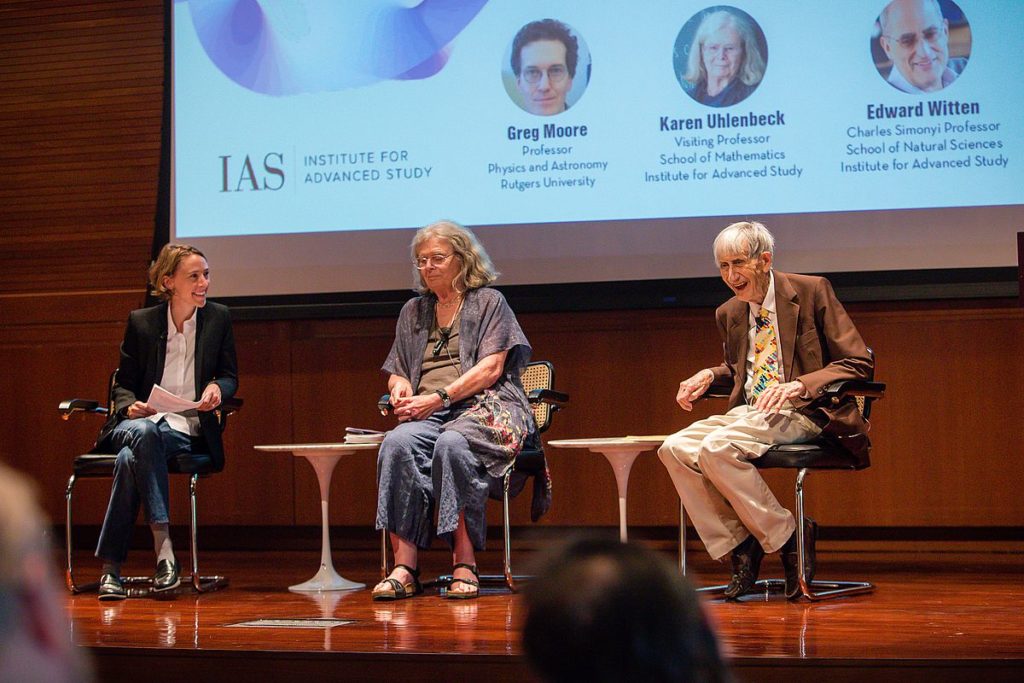
Natalie Wolchover, senior writer and editor at Quanta magazine talks with mathematician and physicist Freeman Dyson, and mathematician Karen Uhlenbeck, who recently won the 2019 Abel Prize
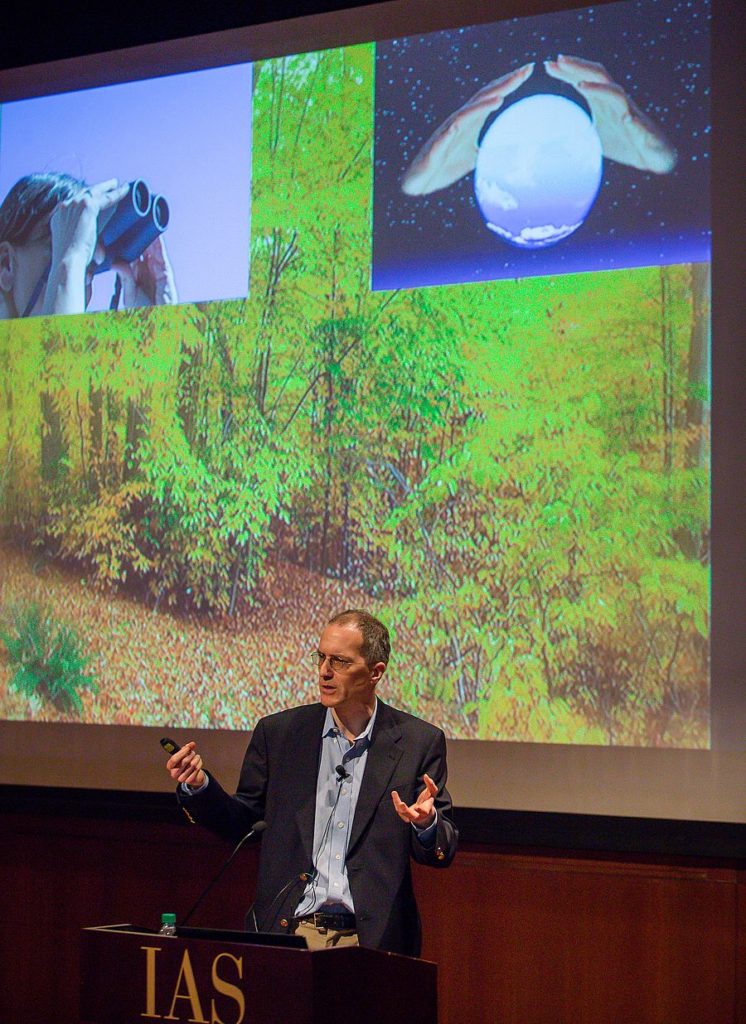
Leading physical mathematician Greg Moore (of Rutgers University) tells one of the great stories of the symbiotic relationship between modern mathematics and modern physics

Natalie Wolchover and Robbert Dijkgraaf
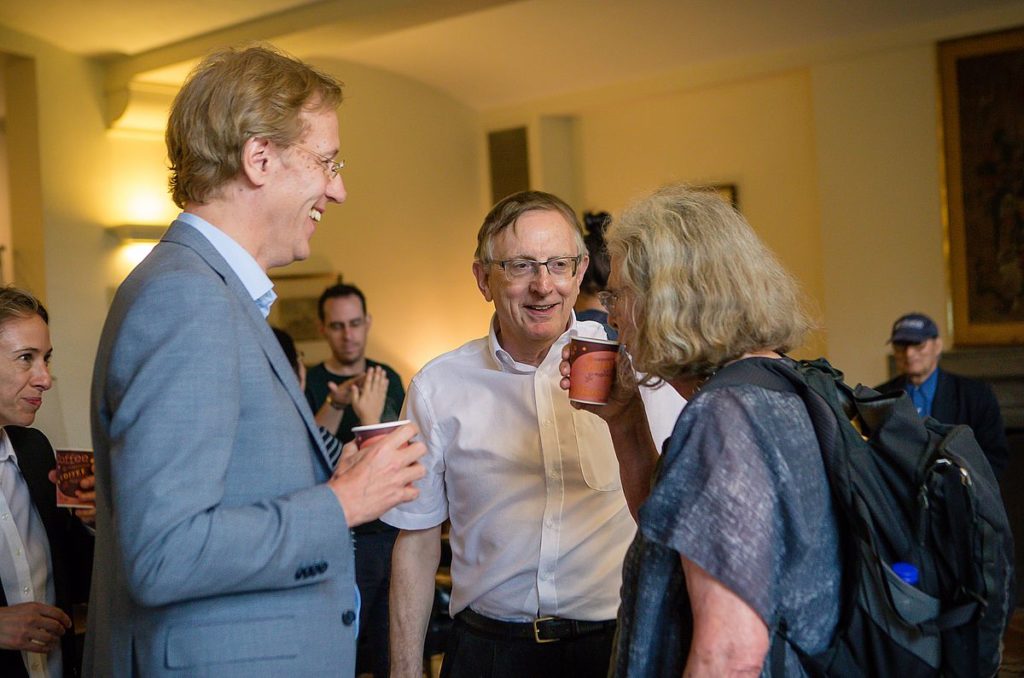
Robbert Dijkgraaf, Karen Uhlenbeck and Graham chatting over tea in Fuld Hall
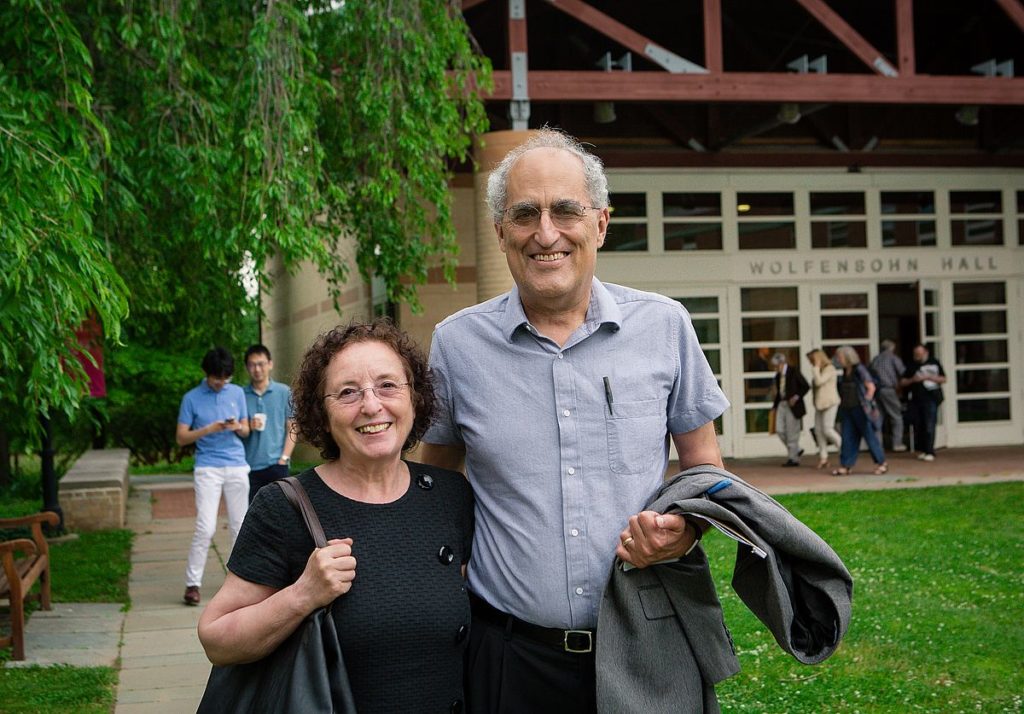
Edward Witten and Chiara Nappi
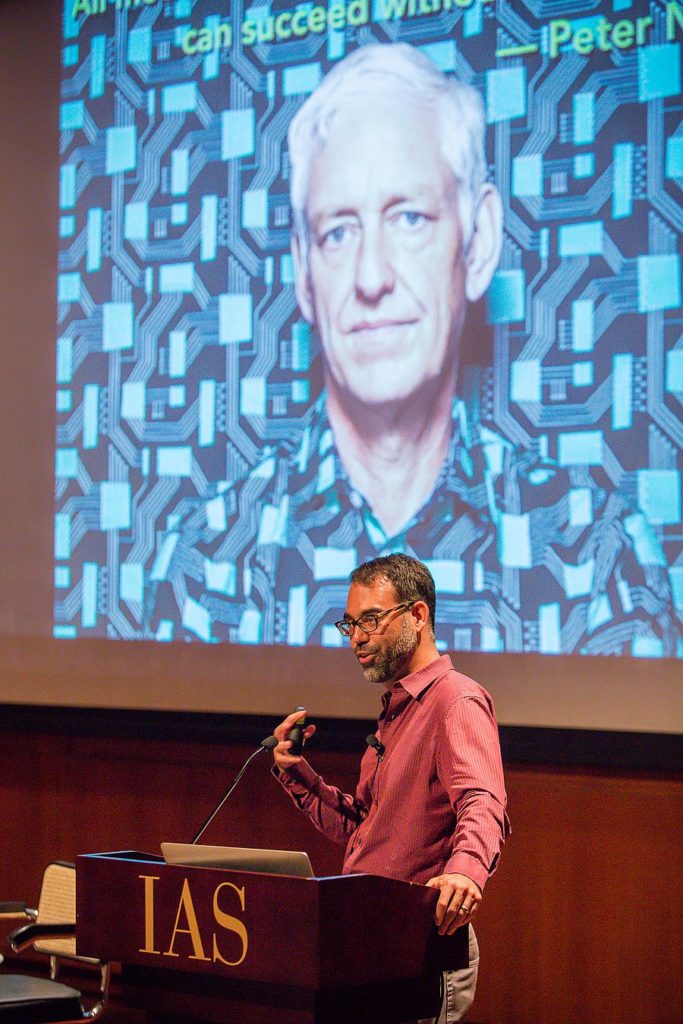
Kyle Cranmer presenting a perspective based on the primacy of experiment and observation
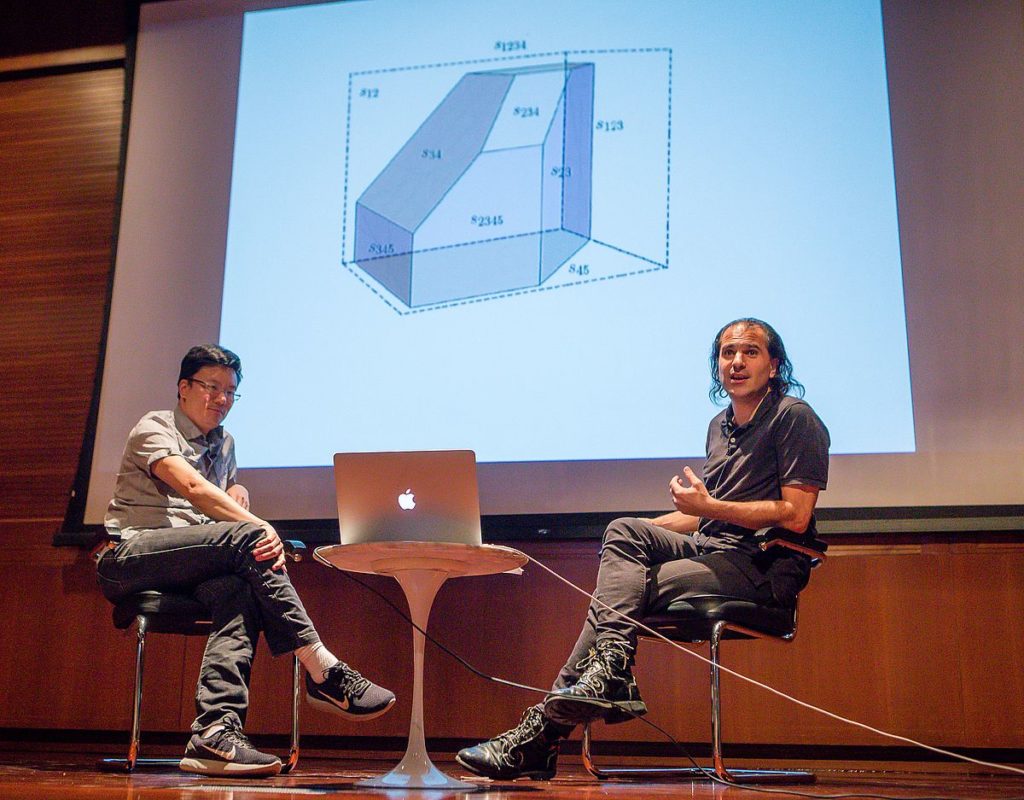
Theoretical physicist Nima Arkani-Hamed and mathematician Thomas Lam talk about their current relationship, at the interface between physics and mathematics
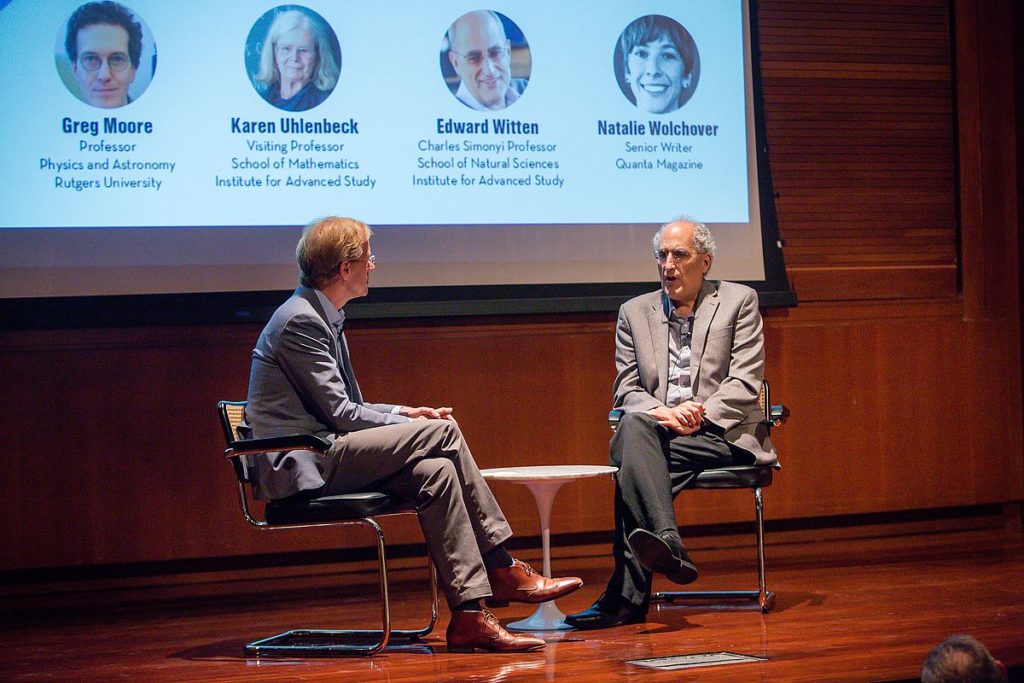
Robbert Dijkgraaf interviews Edward Witten
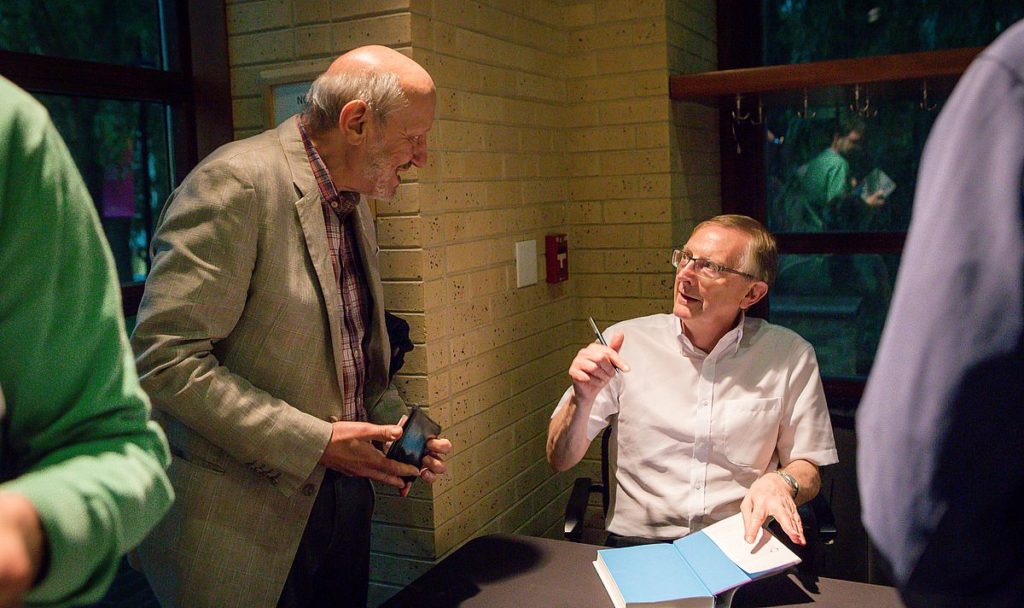
Graham signing a copy of The Universe Speaks in Numbers for leading Spinoza scholar Jonathan Israel
After the event, some of the speakers went to dinner at the Cargot Brasserie. Graham spent most of the evening talking with Freeman Dyson, Robbert Dijkgraaf and NY science writer Dennis Overbye. The conversation ranged widely, from the achievements of the recently-deceased Murray Gell-Mann to the public response to string theory. Most memorable of all for Graham was seeing Freeman entranced by a card trick ably performed at the end of the evening by Dennis’s guest.
A week later, in the Harvard’s Science Center, Graham was interviewed by physicist Jacob Barandes in the series of public events organised by Harvard librarian Marina Werbeloff, in collaboration with the Harvard Bookstore (a favourite haunt of Graham’s in Cambridge MA). It was a lively interview, with plenty of penetrating questions from the audience. ‘It was great to see so many audience members buying the book’, Graham commented, in gratitude and relief.
In the audience, Abba Shmuel took several photographs and he has kindly given permission for some of them to be included here. (The only photo not taken by Abba is the second one, taken by a helpful staff member).
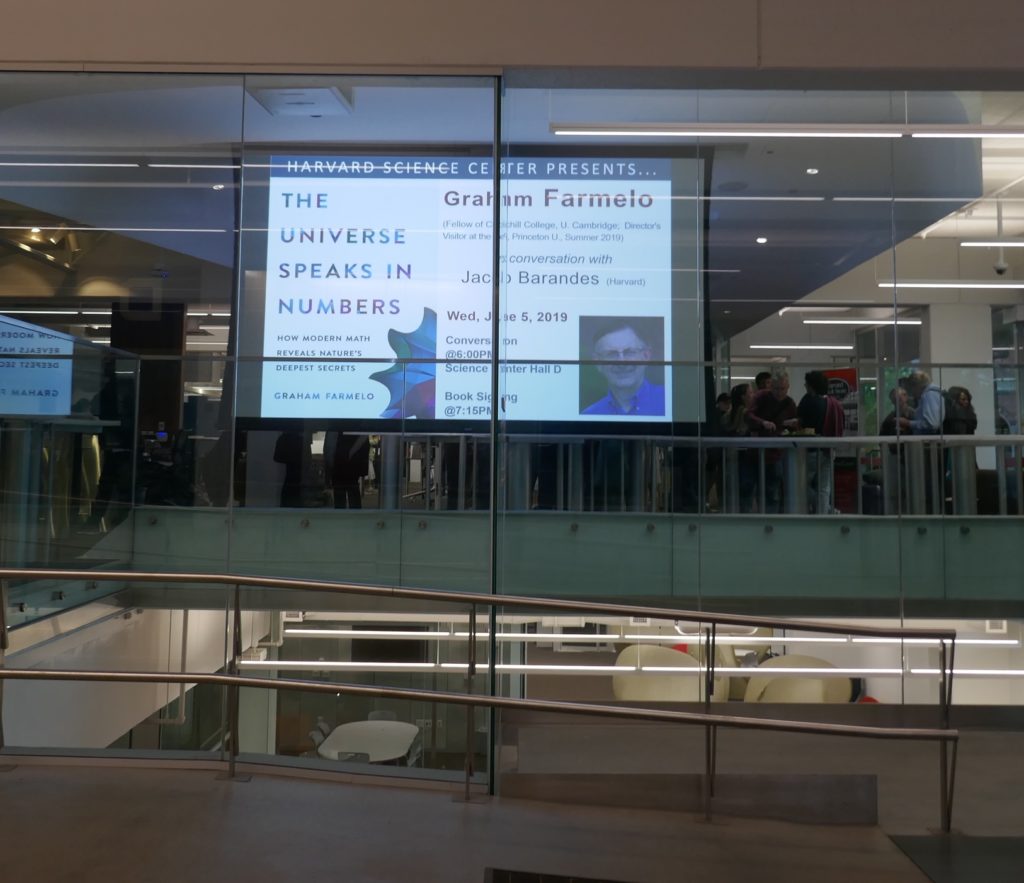
E-billboard at the Cabot Science Center Library, Harvard University
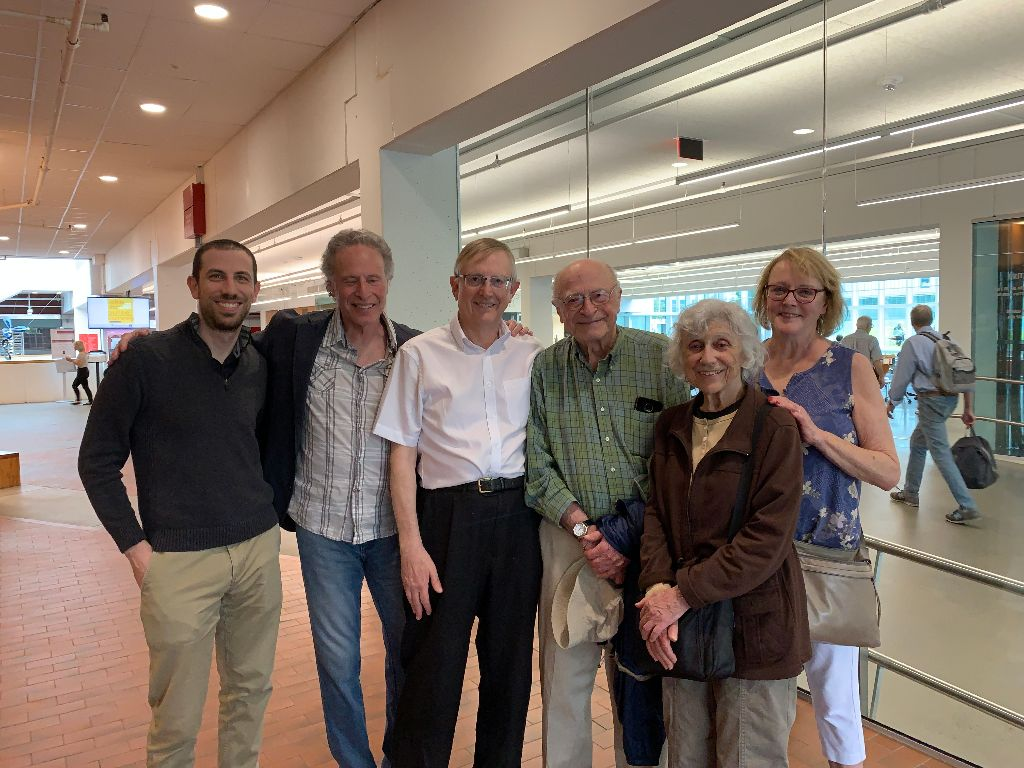
Before the show (left to right): Hal Emmer, Chuck Schwager, Graham, Mel Scovell, Lilla Waltch and Jan Durgin.
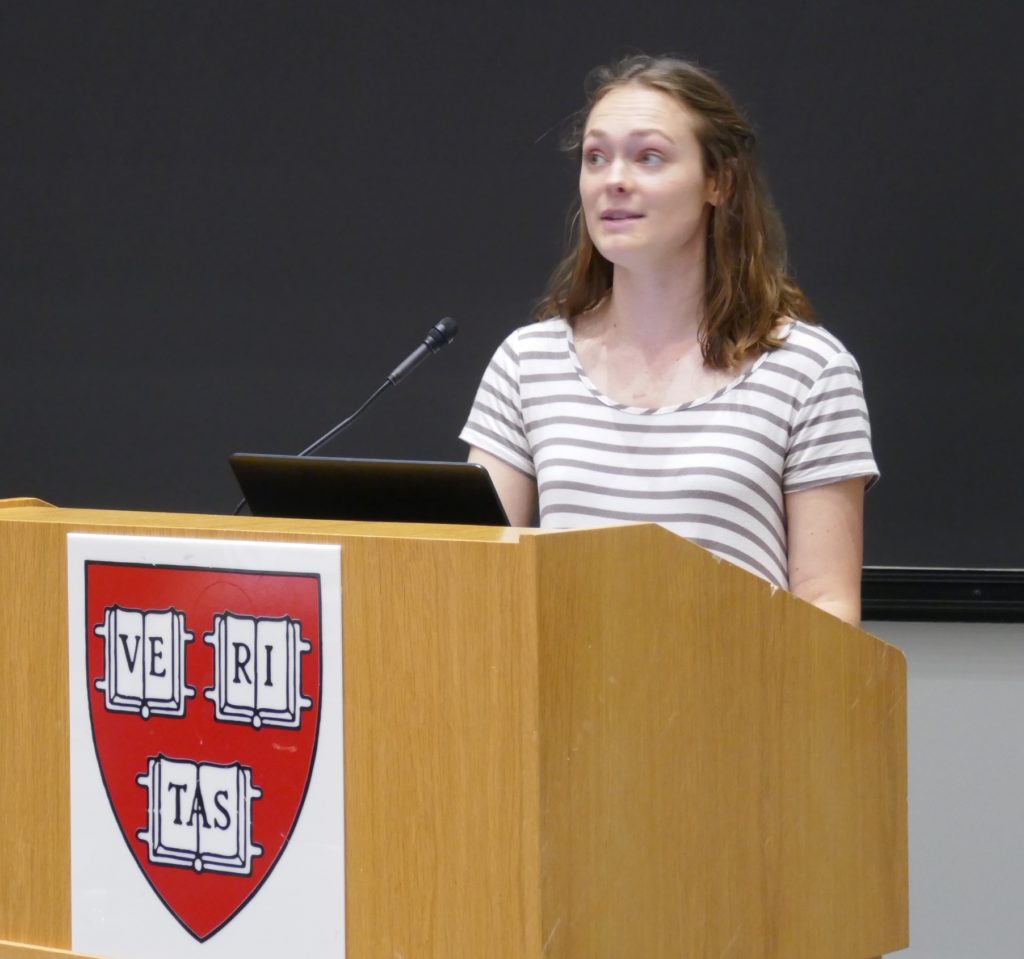
Harvard Bookstore’s Kate Brouns opens the proceedings
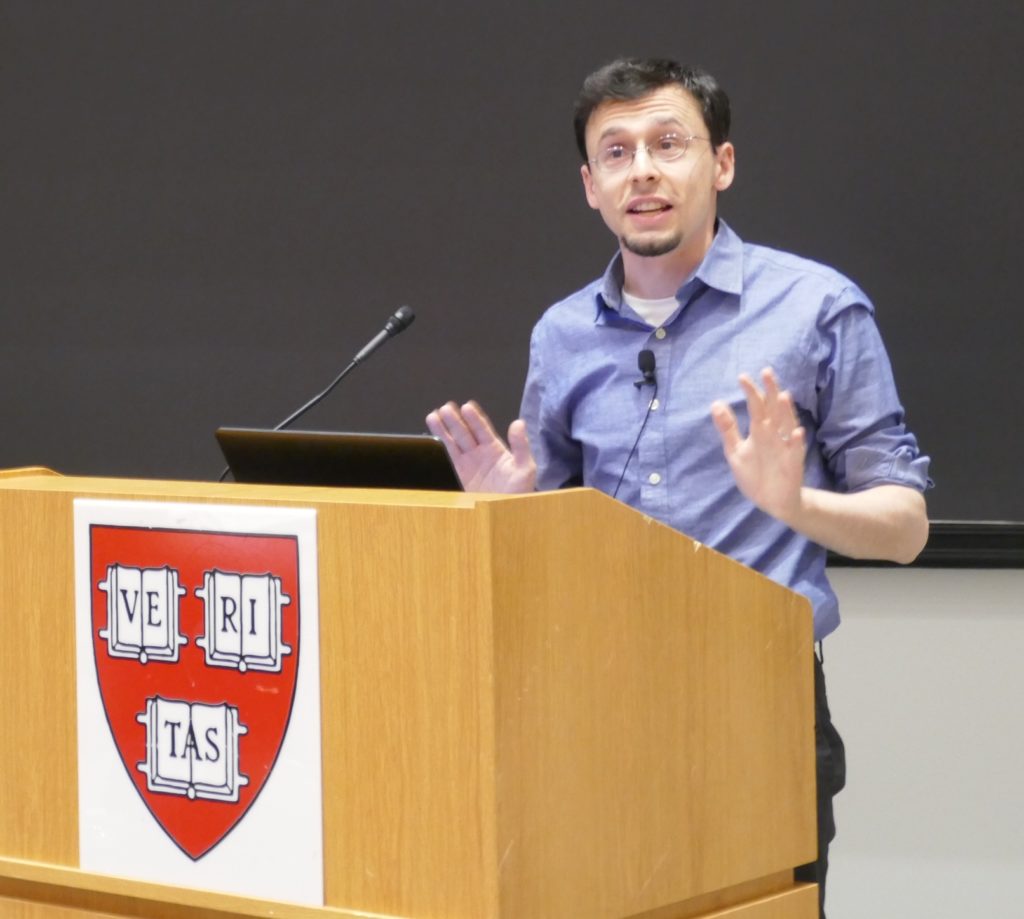
Jacob Barandes introduces Graham
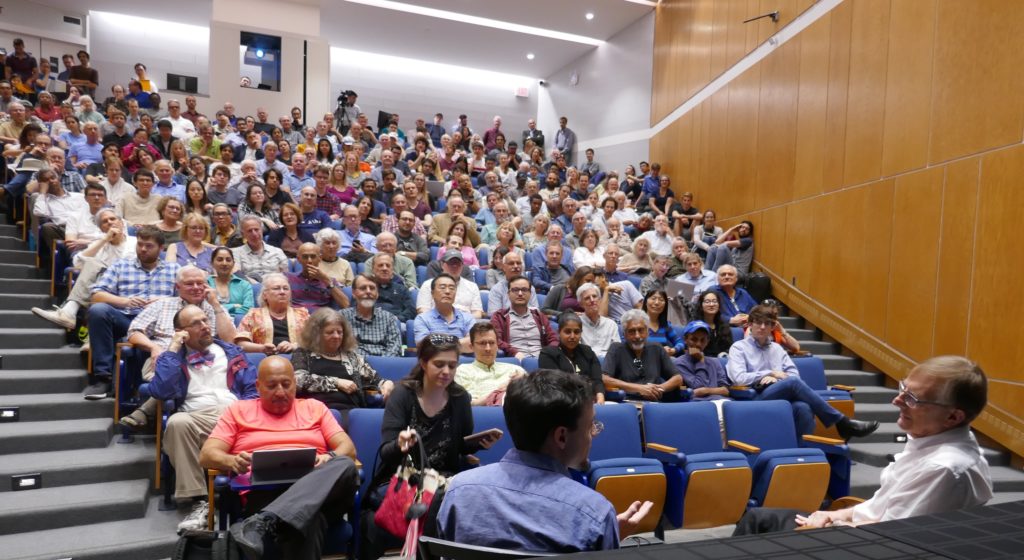
The delightful audience
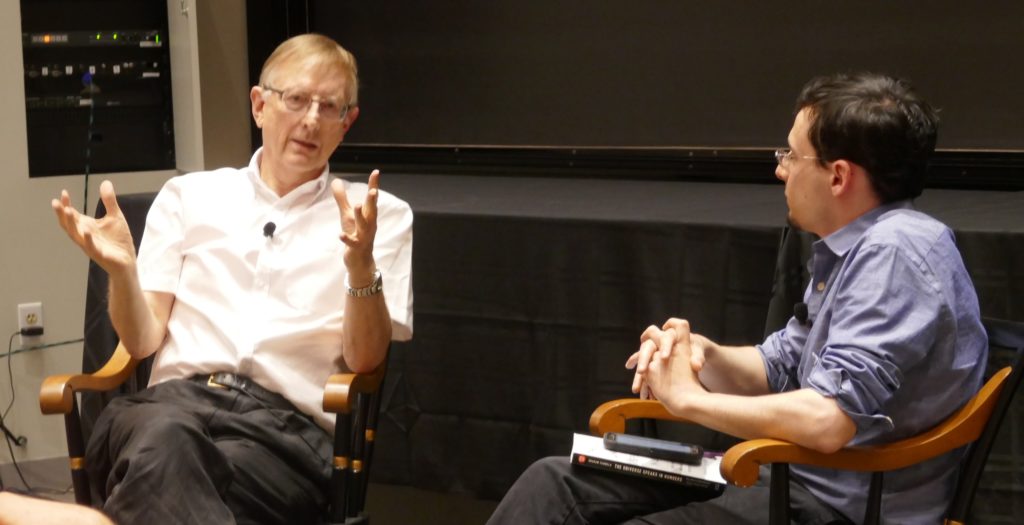
Graham and Jacob in conversation
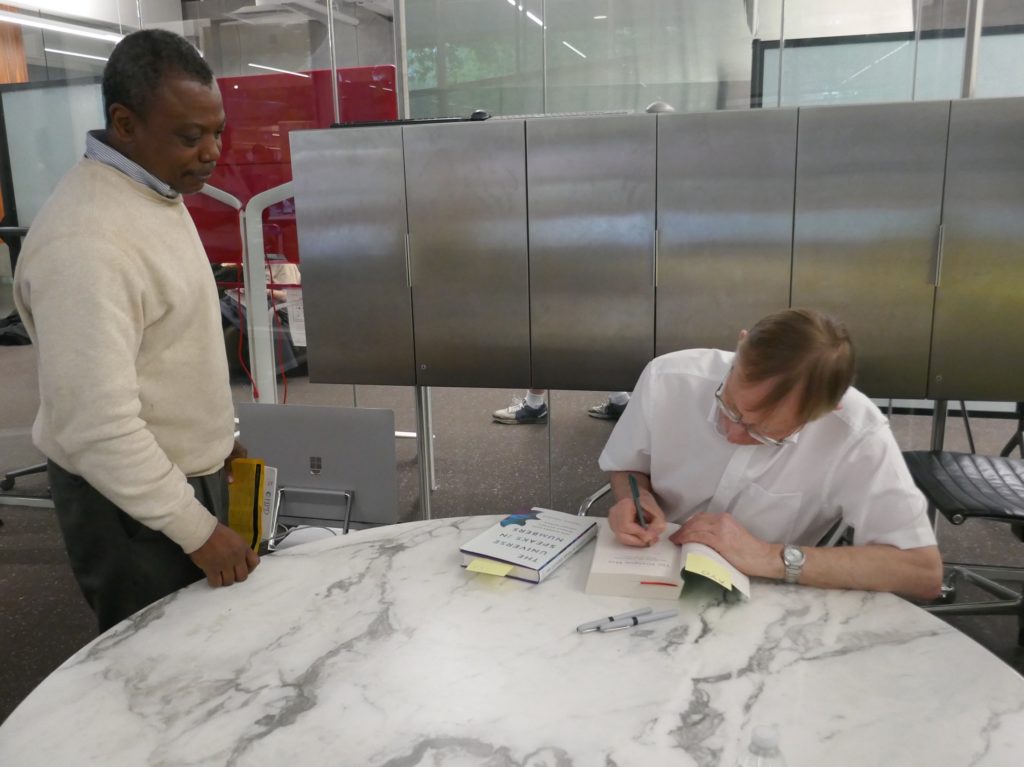
At the book signing, Graham was especially grateful to this gentleman, who bought a copy of both The Universe Speaks in Numbers and The Strangest Man.
After the event, Graham, Jacob and several friends had dinner at Nirvana, a nearby Indian restaurant. Jacob dazzled the assembled company – including the Hollywood screenwriter Nell Scovell – with his virtuoso account of extremum principle in physics, while Graham tucked into the samosas.